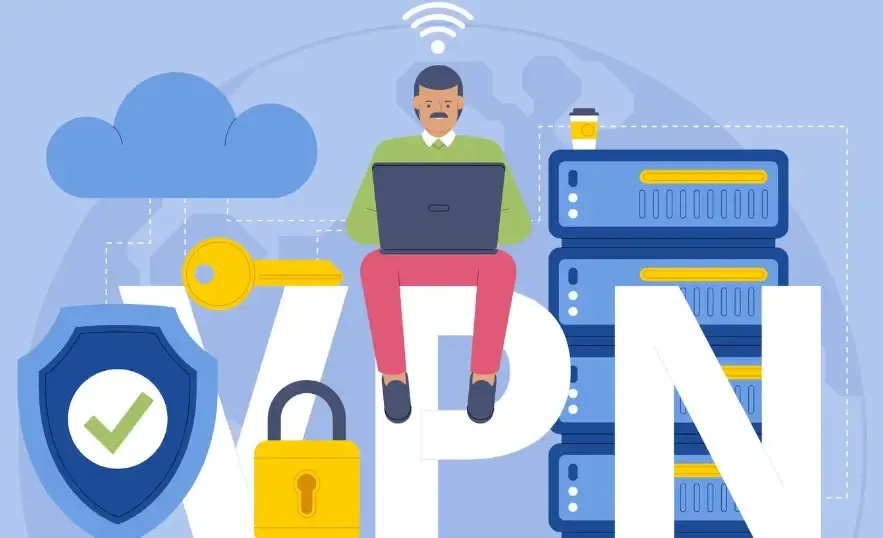While WebRTC technology provides browsers with convenient real-time communication capabilities, it also brings the risk of exposing real IP addresses. This article comprehensively explains WebRTC real IP leak prevention, from technical principles and protection strategies to practical operations and enterprise applications, and introduces how to effectively detect and protect using the ToDetect tool.

1. Causes and Risks of WebRTC Real IP Leaks
WebRTC performs peer-to-peer communication directly through the browser, using STUN servers to obtain network information. Even with a VPN, WebRTC may access local or public IPs.
Leak Types:
Local network IP leak
Public IP leak
IPv6 leak
Potential Risks:
Privacy tracking: Users' online behavior and location may be identified
Geolocation exposure: Affects cross-border e-commerce pricing, taxes, and logistics displays
Potential network attacks: Hackers may attack via exposed IPs
2.Comprehensive WebRTC Protection Strategies
1. Disable WebRTC
Most browsers (Chrome, Firefox, Edge) allow users to disable WebRTC in settings.
**Advantages:** Completely prevents WebRTC leaks
**Disadvantages:** May affect video calls, online meetings, and other functions
2. Use Leak-Prevention Extensions
Recommended extensions: WebRTC Leak Prevent, uBlock Origin, etc.
**Advantages:** Prevents IP leaks while maintaining WebRTC functionality
**Suitable for:** Regular users and light office environments
3. Configure VPN and Firewall
Choose a VPN with WebRTC protection: Ensure STUN requests are routed through the VPN
Firewall settings: Restrict WebRTC-related ports or IP access
**Advantages:** Enhances network-level protection, suitable for enterprises or high-security users
4. Regular Testing and Monitoring
Single-layer protection cannot guarantee long-term security; regular testing is necessary.
ToDetect Tool Advantages:
Real-time WebRTC leak detection
Provides detailed IP leak reports
Can be monitored regularly to detect protection gaps promptly
3. Enterprise and Cross-Border E-Commerce Protection Considerations
For cross-border e-commerce platforms:
IP leaks may cause inaccurate pricing, logistics, and tax displays
If user privacy is exposed, GDPR or other international regulations may be triggered
Solutions:
Integrate ToDetect API into the platform
Regularly test visitors' IP leak risks
Combine with firewall and VPN strategies to ensure user privacy
4. Common WebRTC Protection Questions
1. Will WebRTC protection affect browser functionality?
Disabling WebRTC may affect video calls and online meetings
Using leak-prevention extensions is recommended to balance functionality and privacy
2. Can VPN fully prevent WebRTC leaks?
Regular VPNs cannot fully protect
Choose VPNs with WebRTC protection and combine with ToDetect for regular testing
3. How can enterprises prevent visitor IP leaks?
Enterprises can use ToDetect to monitor visitor IPs
Combine with firewall and VPN strategies to ensure privacy compliance
4. How to verify if protection strategies are effective?
Use ToDetect for WebRTC leak testing
Ensure the real IP is not exposed
5. Conclusion
WebRTC protection concerns not only personal privacy but also enterprise compliance. Multi-layered strategies can effectively protect:
Disable WebRTC
Use leak-prevention extensions
Configure VPNs and firewalls with WebRTC protection
Regularly test with ToDetect
A multi-layered protection system ensures network privacy and data security for both individuals and enterprises.
 AD
AD Cross-Border E-Commerce WebRTC Leak Detection and Complete IP Protection Guide
Cross-Border E-Commerce WebRTC Leak Detection and Complete IP Protection Guide Comprehensive Guide to Free WebRTC Testing Tool ToDetect: IP Leak Detection and VPN Protection
Comprehensive Guide to Free WebRTC Testing Tool ToDetect: IP Leak Detection and VPN Protection Complete Guide to Prevent WebRTC IP Leaks: Technical Principles, Strategies, and Practical Tools
Complete Guide to Prevent WebRTC IP Leaks: Technical Principles, Strategies, and Practical Tools AD
AD How to Use ToDetect to Check Your Browser Fingerprint?
How to Use ToDetect to Check Your Browser Fingerprint? The Ultimate Anti-Linking Tool for Multi-Account Matrix Marketing: Browser Fingerprint Detection
The Ultimate Anti-Linking Tool for Multi-Account Matrix Marketing: Browser Fingerprint Detection One-Click Browser Fingerprint Check! The Ultimate Guide to Preventing Account Linking and Bans on Amazon/eBay Multi-Store Operations
One-Click Browser Fingerprint Check! The Ultimate Guide to Preventing Account Linking and Bans on Amazon/eBay Multi-Store Operations